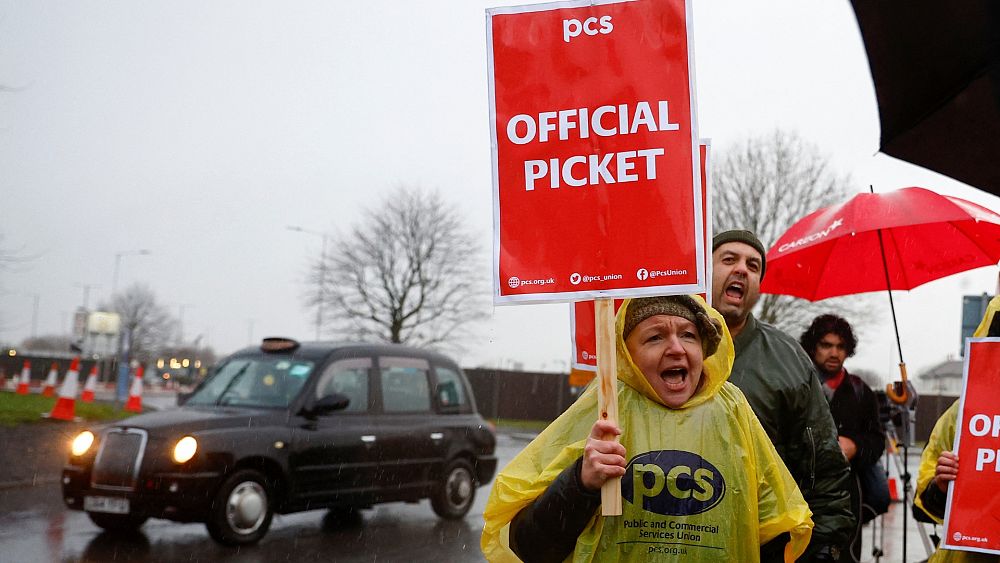Around 100,000 civil servants are set to go on strike in the UK on 1 February, the Public Commercial Services Union (PCS) has announced.
The union voted to strike in November but so far just 5,000 workers have walked out including Border Force airport security staff. The 24 hour industrial action on 1 February will involve all members of the union across 124 government departments and institutes.
A further 33,000 PCS members from five more departments including HM Revenue and Customs will vote on whether to join the strike next week.
Will the UK’s civil service strikes affect travellers?
The Christmas strikes included Border Force workers at Heathrow, Gatwick, Manchester, Glasgow Cardiff and Birmingham airports as well as the port of Newhaven in East Sussex.
With the inclusion of all PCS workers in the 1 February walkout, this could extend to all Border Force staff across the country.
Earlier this month, PCS warned that strikes over pay and conditions could extend to ports including Dover - potentially bringing freight services in and out of the UK to a standstill.
The civil service strike will also include workers at institutions such as the National Galleries of Scotland, the British Museum and the Royal Botanic Gardens, Kew.
How did Christmas Border Force strikes affect passengers?
Eight days of strikes saw more than 1,000 union workers walk out at some of the UK’s busiest airports.
The action reportedly caused minimal disruption for passengers but led to a 95 per cent drop in people being stopped at passport control causing concerns about security.
Heathrow Airport said, despite the busiest Christmas period it has seen in three years, 92 per cent of passengers passed through security in under 10 minutes.
More than 5.9 million passengers travelled through the airport in December with bosses saying that they provided a “smooth and efficient” service, with the military brought in to help.
Why are civil service workers striking in the UK?
The 24 hour walkout on 1 February will be the largest civil service strike for years, according to PCS.
The union says it signals a significant escalation of industrial action after months of strikes over pay, pensions, redundancy terms and job security.
“During the last month, when thousands of PCS members across a range of departments took sustained industrial action, the government said it had no money,” PCS general secretary Mark Sewotka said in a statement.
“But it managed to find millions of pounds to spend on managers and military personnel in a failed attempt to cover the vital work our members do.
“We warned the government our dispute would escalate if they did not listen - and we’re as good as our word.”
It also coincides with the Trade Union Congress’s ‘protect the right to strike’ day which was announced on Tuesday as a protest against the UK’s new strike laws.
These laws, set to come into force later this year, aim to enforce minimum service levels during strike action including for ambulance staff, firefighters and railway workers. Unions have called the proposed bill “undemocratic, unworkable and almost certainly illegal.”


